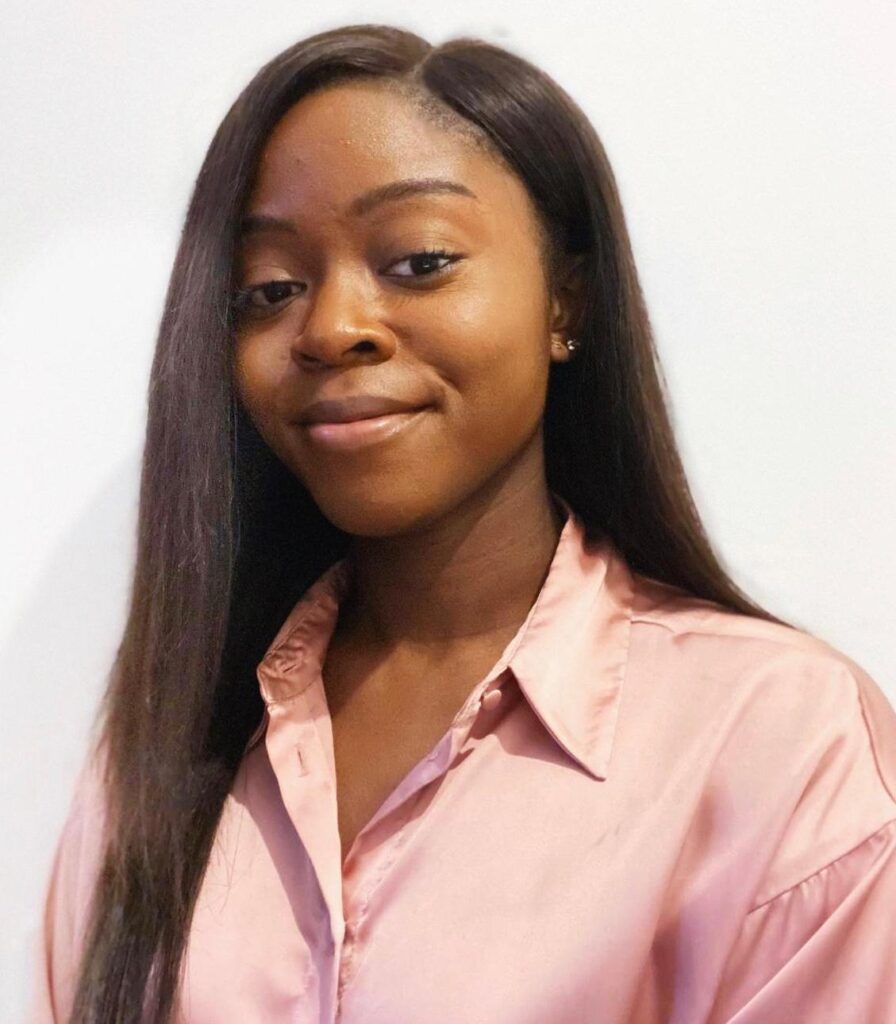Learn To Code Without Breaking The Bank: How These Coders Have Done It

Meet these amazing coders, their tech journey and how they learned to code without breaking the bank!
Meet the coders

Temi, Software Engineer & Founder
Temi is a Software Engineer at a start-up in London and the founder of Simplex Code, an educational tech platform that aims to make technical concepts simple and industry information accessible to those interested in pursuing a career in technology.
TEMI: I made the decision last year to fully commit to learning how to code by taking part in the 100 days of code challenge. Whilst doing the challenge, I took two Udemy courses and a month-long Code First Girls hackathon, which allowed me to put what I learnt into practice by building a prototype app from scratch in a team. I recently started as a Software Engineer for a start-up in London. On Youtube, I advise those learning to code, highlight different STEM careers, and give my insight into the tech industry.

Nicole, Front End Developer
Nicole is a self-taught Front End Developer, freelancer, and now a Full Stack Bootcamp student, honing her skills and learning more of the backend.
NICOLE: I’m self-taught by using several online resources. On YouTube, I talk about my passion for tech equity and accessibility. I want to do what I can to bring more diversity into tech and prove to young people that anyone can get into the industry and be successful with a little hard work and the right strategy.

Amina, Software Engineer
Amina is an Accessibility Advocate, Software Engineer, Content Creator and Social Commentator. Amina recently resigned as a Full Stack Engineer to focus on web accessibility which blossomed while starting her YouTube channel during the lockdown.
AMINA: I wanted to get out of entry-level marketing roles and learn more about UX design. I was exposed to HTML, CSS and WordPress but frustrated by how pricy Bootcamps could be. On Twitter, I came across a 4-month intensive coding Bootcamp that was being run by CodeFirst Girls who collaborated with BT. I’m very excited to use my technical background to push for meaningful change in accessibility.
Interview: Learn to Code Without Breaking the Bank
Why should I know how to code?
NICOLE: Coding is an essential skill. Even learning the basics can benefit you tremendously as our world becomes increasingly more digital. Most jobs involving coding have a higher than average growth rate projection, which instils confidence in its usefulness and the security involved in having such skills.
TEMI: One of the biggest reasons to learn coding is job security and a good salary! The tech industry is booming, and there are plenty of jobs for software developers. Even if you don’t want to be a developer, knowing how to think computationally is a valuable skill because you’re more digitally fluent, which is an advantage over other job seekers. When you learn how to code and build applications, you enhance your skills in problem-solving and reasoning.
AMINA: The digital world, as we know, is moving at a very fast pace. Knowing how to code can equip you with the foundation to understand the changes happening at a micro-level. If you like to solve problems, I would highly encourage it. Skills in coding are valuable and can enhance your career progression, even if you’re not looking for a software role. At the very least, it’s helpful to have a basic understanding of how coding contributes to the products that we all use.
Which programming language should I learn first?
TEMI: There isn’t one programming language better than another, but it’s a good idea to think about what you want to build and the problems you want to solve. Below are some ideas of where you can start:
- If you want to build iOS apps, then start with Swift
- If you want to build Android apps, then start with Java
- If you’re interested in Data Science, then consider learning Python or R
Generally, for beginners, I think JavaScript and Python are great languages because of their beginner-friendly syntax. JavaScript is great if you’re interested in frontend web development and building websites!
AMINA: Think about what you want to do or like doing already. For example, if you’re an avid gamer, you might want to get into games development. If you want to build websites, you’ll want to get into web development. If you’re going to work with data, you should get into data science. If you have no idea where to start and are just open to learning to code, I would always suggest learning HTML and CSS.
Understanding how the internet works and how web applications interact with the browser is something I wish I had known when I started to understand APIs and grasp how they’re used. If it’s a backend language you want to begin with, I would highly suggest Python because it has a more friendly syntax for beginners.
NICOLE: I chose to learn HTML+CSS then JavaScript. I would recommend this path to others that are new to the field because you grasp a lot of the terminology, structure and background of what makes up our web with HTML + CSS, and JavaScript works seamlessly with them. It’s a great way to be introduced to basic and then eventually more complex programming concepts.
Which free or budget-friendly courses have helped you on your coding journey?
AMINA: There are so many free resources out there to choose from that it can be overwhelming. As a result, I created a free Coding Roadmap because it can be overwhelming if you’re new to coding.
NICOLE: Codecademy is a great free place to start. I also highly recommend sites like edX.org, Udemy.com for free or very budget-friendly options. Most of the programming courses that I purchased on Udemy were less than $20USD and were quality resources. I made sure to check the reviews before buying.
TEMI: Whilst learning to code, I took two Udemy courses. The first course I took was a JavaScript course called the ‘JavaScript Beginner Bootcamp’ by Rob Merrill. The second was a full stack web developer course called ’The Web Developer Bootcamp 2021’ by Colt Steele. Udemy courses are great but make sure you always wait until there’s a sale before you buy a course. Never buy a course when it’s full price!
How long does it take until I’m good enough to apply for a job?
NICOLE: I believe it’s less about the time and more about the work you put it. It’s really up to you how much time it can take. Focusing on grasping core concepts and learning how to troubleshoot effectively are very important if landing a job quickly is a goal.
AMINA: This depends on your journey and how much time you’re investing. It’s very unlikely you’ll always be able to meet every single requirement in a job description when applying anyway. When I handed in my notice, I was worried about whether I would be good enough. Still, the more interviews I did, the more I realised that it’s not expected for you to know everything immediately. My advice is to be consistent with your learning and update your CV every few months to see your own progress.
TEMI: When it comes to learning to code, you should avoid restricting yourself to a timeline, which will put unnecessary pressure on you. My advice is to take time to understand the fundamentals of programming, and once you feel comfortable, I would recommend building applications on your own. If you’re self-teaching and don’t have a computer science degree, having a portfolio of projects on GitHub or a personal website is a great way to build upon what you have learnt and show employers you’re enthusiastic about coding.
Where can I practice my coding skills?
TEMI: You can use websites like LeetCode and HackerRank to practice your data structure and algorithm skills, which are essential to know if you want to pass technical interviews. You can also use Codecademy, freecodecamp and CodeWars to practice your understanding of the fundamentals of programming.
NICOLE: I enjoy CodeWars for working through programming logic problems. LeetCode is another excellent place to practice for more advanced algorithm problems and interview prep. There are also so many games like Flexbox Froggy is a fun way to grasp complex concepts.
AMINA: There are CodeWars and Leetcodes to practice the type of questions you’ll get for interviews. I prefer working on projects and applying what I know in a work environment simply because I see how my learning has developed. Personally, I don’t get much satisfaction when completing online questions, however, you may find it helpful to stay sharp with your programming skills.
Any advice for keeping sane while you’re teaching yourself to code?
AMINA: It’s a marathon, not a race. Don’t stress about how much or little you’re picking up. A lot of coding relies on muscle memory, so focus on consistency. Coding is a great skill, but it can also be challenging, and that’s ok. Join a community and ask for help when you need it because people like to help and support you. This is not an industry to always ride solo.
TEMI: If you’re self-teaching, you will do most of your learning alone, but it doesn’t have to be. I’d highly recommend finding a local or online community of other developers, so you have a support network. This also helps to build a network of other people learning to code and professionals in the industry. There’s a large online community of developers on Twitter, Instagram and even TikTok. I have a video where I talk about what you need to know before taking the leap and learning to code.
NICOLE: Make a plan for yourself! I created one when I got serious about my journey, and it helped tremendously. In the same way, learning institutions develop curriculums. It’s important to create something similar for yourself to act as a benchmark for progress and help you stay on track to ensure you’re making strides in the direction you ultimately want to go. I share advice on my YouTube channel for anyone who needs guidance with this!



